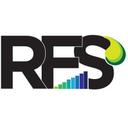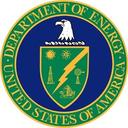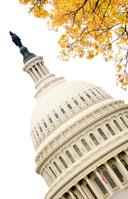Rep. Beth Van Duyne, R-Texas, on Jan. 16 introduced a bill that aims to repeal the Section 45Z clean fuel production credit. The tax credit, established by the IRA, supports the production of various low-carbon transportation fuels.
The South Dakota House of Representatives on Jan. 27 voted 49 to 19 to approve a bill that would prevent the use of eminent domain for the development of CO2 pipelines, in a move opponents say will cause economic harm to the state.
SAF Magazine, in collaboration with the CAAFI, has announced the 2025 North American SAF Conference & Expo will be held Sept. 22-24 in Minneapolis, Minnesota, at the Minneapolis Convention Center. Speaker abstracts can be submitted through May 9.
Brooke Rollins, President Donald Trump’s nominee to serve as secretary of agriculture, discussed her support for biofuels and addressed concerns over her ties to the oil industry during a Senate confirmation hearing on Jan. 23.
The Senate Environment and Public Works Committee on Jan. 23 voted 11-8 to advance the nomination of Lee Zeldin to serve as administrator of the U.S. EPA. The next step in the confirmation process is a full Senate vote.
Sen. Jerry Moran, R-Kan., and a bipartisan groups of colleagues on Jan. 16 reintroduced the Farm to Fly Act, a bill that aims to accelerate the production and development of sustainable aviation fuel (SAF).
The U.S. EPA on Jan. 17 published its third triennial report to Congress on biofuels and the environment. The document, the third in a series of required reports to Congress, takes a critical view of the RFS’s impact on the environment.
Clean Fuels is asking the U.S. EPA to pause the rulemaking process on its proposed partial waiver of 2024 cellulosic volumes until it can provide a full accounting of all available cellulosic RINs for 2024 and consider the impact of SREs.
The U.S. EPA on Jan. 17 released updated data showing that more than 25.22 billion renewable identification numbers (RINs) were generated under the Renewable Fuel Standard in 2024, up from 23.85 billion in 2023.
Lee Zeldin, President-elect Donald Trump’s nominee to serve as U.S. EPA administrator, on Jan. 16 responded to questions regarding his support for the RFS, E15 and SAF during a hearing held by the Senate Environment and Public Works Committee.
The USDA on Jan. 15 published an interim rule that establishes guidelines for quantifying, reporting and verifying GHG emissions associated with the production of biofuel feedstock commodity crops grown in the U.S.
The U.S. Department of Energy on Jan. 15 released the 45ZCF-GREET model. The announcement follows the U.S. Department of the Treasury and Internal Revenue Service guidance on the 45Z clean fuels production credit released on Jan. 10.
The U.S. DOE, USDA and FAA on Jan. 13 released Sustainable Aviation Fuel (SAF) Grand Challenge 2021-2024 Progress Report, which underscores the importance of continued investment in the rapidly growing biofuels industry.
DOE announces $25 million to advance the US aquaculture industry for biomass production in the deep ocean
The U.S. DOE Advanced Research Projects Agency-Energy (ARPA-E) has announced $25 million to develop a U.S.-led marine energy hydrocarbon and industrial commodity supply through the deep-water cultivation of seaweed biomass at million-ton scale.
Calumet Inc. on Jan. 10 announced the closing of a $1.44 billion U.S. Department of Energy loan guarantee to fund construction of Montana Renewables’ MaxSAF initiative, which aims to boost SAF capacity at the biorefinery to 300 MMgy.
Treasury and the IRS on Jan. 10 released guidance on the 45Z clean fuels production credit, including a notice of intent to propose regulations and a notice providing the annual emission rate table for the credit.
The U.S. DOE and the U.S. EPA on Jan. 8 awarded $6 million to three companies that are working to scale up innovative biofuel production technologies, including those focused on SAF and cellulosic ethanol.
USDA announces appointments to the Greenhouse Gas Technical Assistance Provider and Third-Party Verifier Program Advisory Council
The USDA has appointed 36 members to serve on the newly formed Greenhouse Gas Technical Assistance Provider and Third-Party Verifier Program Advisory Council, informally known as the Growing Climate Solutions Act Advisory Council.
The U.K.’s sustainable aviation fuel (SAF) mandate officially came into force on Jan. 1. By law, SAF must now account for at least 2% of all jet fuel in flights taking off from the U.K. The mandate is set to expand to 10% in 2030 and 22% in 2040.
The U.S. DOE has announced its intent to issue funding to support high-impact research and development (R&D) projects in two priority areas: sustainable propane and renewable chemicals and algal system cultivation and preprocessing.
The U.S. EPA on Dec. 19 released data showing that 2.03 billion RINs were generated under the RFS in November, up from 2.01 billion generated during the same month of 2023. Nearly 22.9 billion RINs were generated during the first 11 months of 2024.
The USDA Rural Business Cooperative Service on Dec. 13 announced it is extending the deadline to apply for the agency’s Section 9003 loan guarantee program. Applications must now be submitted before Dec. 31.
The U.S. DOE has announced $52 million in funding for six university and industry projects to advance the production of low carbon intensity, purpose-grown energy crops critical to accelerating a clean energy bioeconomy.
CoBank predicts that U.S. production of renewable diesel and associated fuels will experience a modest boost in 2025 but cautions that policy uncertainty looms over administration of the RFS program, SREs and the impact of potential tariffs.
Congress on Dec. 17 released the text of a short-term funding bill that aims to avoid a partial government shutdown. The package includes provisions allowing year-round sales of E15 and enacting a new one-year extension of the 2018 Farm Bill.
Biomass Magazine has released the agenda for the 18th Annual International Biomass Conference & Expo. The event will be held March 18-20 in Atlanta, Georgia, and features tracks focused on pellets, biomass power and thermal, biogas and RNG, and SAF.
Sens. Joni Ernst, R-Iowa, Roger Marshall, R-Kan., and four of their colleagues on Dec. 13 sent a letter to U.S. EPA Administrator Michael Regan regarding surging imports of used cooking oil (UCO), much of which comes from China.
The White House OMB on Dec. 13 published the Fall 2024 Unified Agenda and Regulatory Plan, which outlines regulatory actions under development by federal agencies related to the RFS, biofuel infrastructure and CO2 pipeline safety.
Ethanol groups urged congress to extend the 45Z clean fuel production tax credit and ensure the credit takes a broad approach to climate-smart agriculture (CSA) practices in comments filed with the U.S. House Ways and Means Committee on Dec. 13.
Ethanol Producer Magazine and BBI International are now accepting speaker presentation proposals for the 2025 International Fuel Ethanol Workshop & Expo (FEW). The event is scheduled for June 9-11, 2025, in Omaha, Nebraska.
Advertisement



























